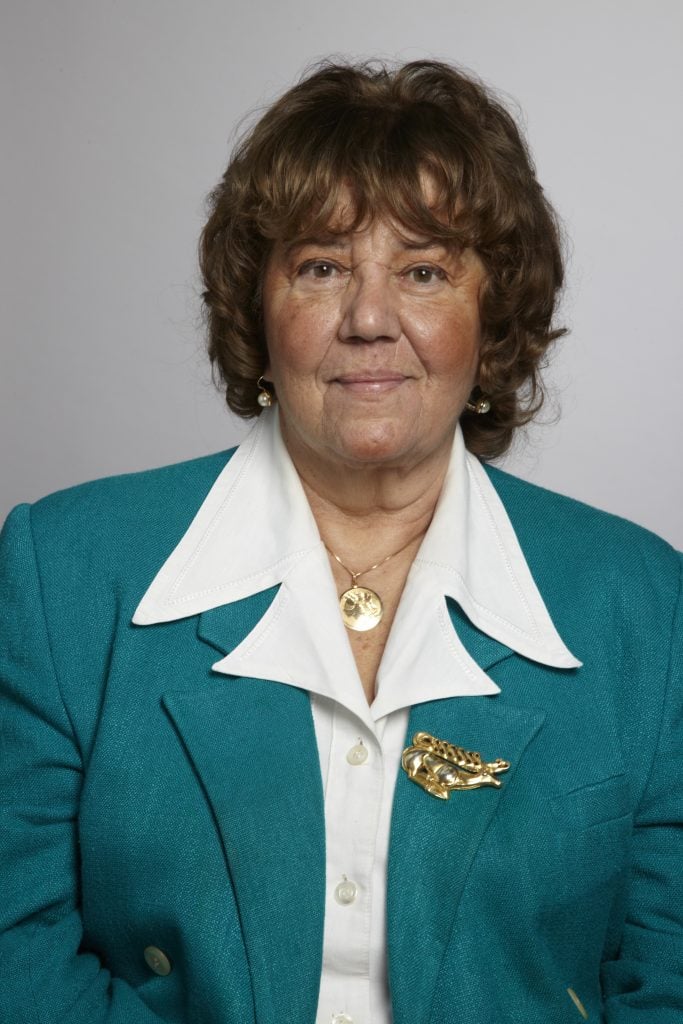
Maria I. New, MD, who served as the Endocrine Society’s president from 1991 to 1992, passed away on July 26, 2024.
New was revered for her studies of congenital adrenal hyperplasia (CAH), which subsequently led to treatments to correct the disorder prior to childbirth. Her groundbreaking identification of mineralcorticoid excess resulted in a new area of receptor biology and she was also the first to describe dexamethasone-suppressible hyperaldosteronism, another form of low resin hypertension.
The daughter of Italian musicians who came to the U.S. to perform, New grew up speaking Italian before she learned to speak English. Therefore, her parents and the rest of her family prepared her for a life in the music profession. “I saw what it took to be a good musician in my family and it’s very difficult,” New said in a 2008 oral history. “You’re either at the top or you’re nothing; there’s no room for mediocrity and I didn’t think I could cut the mustard” in the world of music. “So, I thought there was a lot of room for mediocrity in medicine, so I went into medicine, but you better not quote me on that!”
New easily avoided any “mediocrity in medicine” as her seminal research on the mechanism and genetics of steroid disorders established new standards for prenatal and postnatal care for patients with CAH and apparent mineralocorticoid excess. This research and the many fellows she mentored throughout her career has made her a stalwart of endocrinology for six decades.
An Endocrine Society member since 1967, New’s most recent position was professor of pediatrics and human genetics and director of the Adrenal Steroid Disorders Program with the Mount Sinai School of Medicine in New York City, where she was born and raised. Aside from her tenure as the Society’s president, New was also the editor-in-chief of The Journal of Clinical Endocrinology & Metabolism from 1994 to 1999.
Throughout her 57-year membership in the Endocrine Society, her service to the organization and the field of endocrinology seemed unending. Among the committees on which she served were the Membership Task Force, Nominating Committee, Board of Directors, Executive Committee, Finance and Audit Committee, and the Laureate Awards Committee, among many others. From the Endocrine Society, she received the Rhone-Poulenc Rorer Clinical Investigator Award in 1995; the Robert H. Williams Distinguished Leadership Award in 1988; and in 2003, she was the recipient of the Fred Conrad Koch Lifetime Achievement Award, the Endocrine Society’s most prestigious honor.
During her presidency, New spearheaded the development of the Women’s Caucus, which was a forum for “women to meet and discuss issues that affect women, not only in endocrinology but in their careers as well,” New said in the oral history, adding that it was a big help to women to further their careers as well as find suitable mentors.
New said that the Endocrine Society was her “scientific family” and added that she was very glad she chose endocrinology as her career so she could combine her passion of genetics with endocrinology. When asked about the state of the field of endocrinology in 2008, New replied that she thought it was moving at a very fast pace. “It’s probably moving faster than most other fields. I’m glad to be part of it!”
To watch an Endocrine Society oral history interview with New conducted in 2008, go to: https://www.youtube.com/watch?v=RDuKLVzi-mQ.

